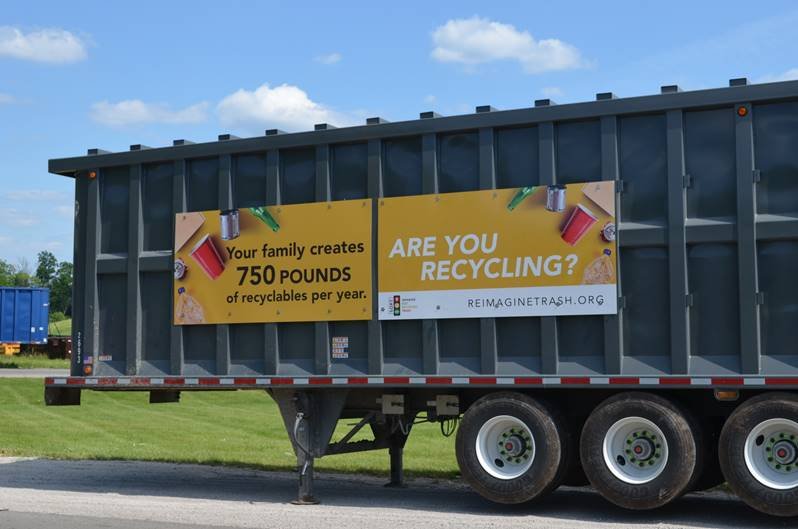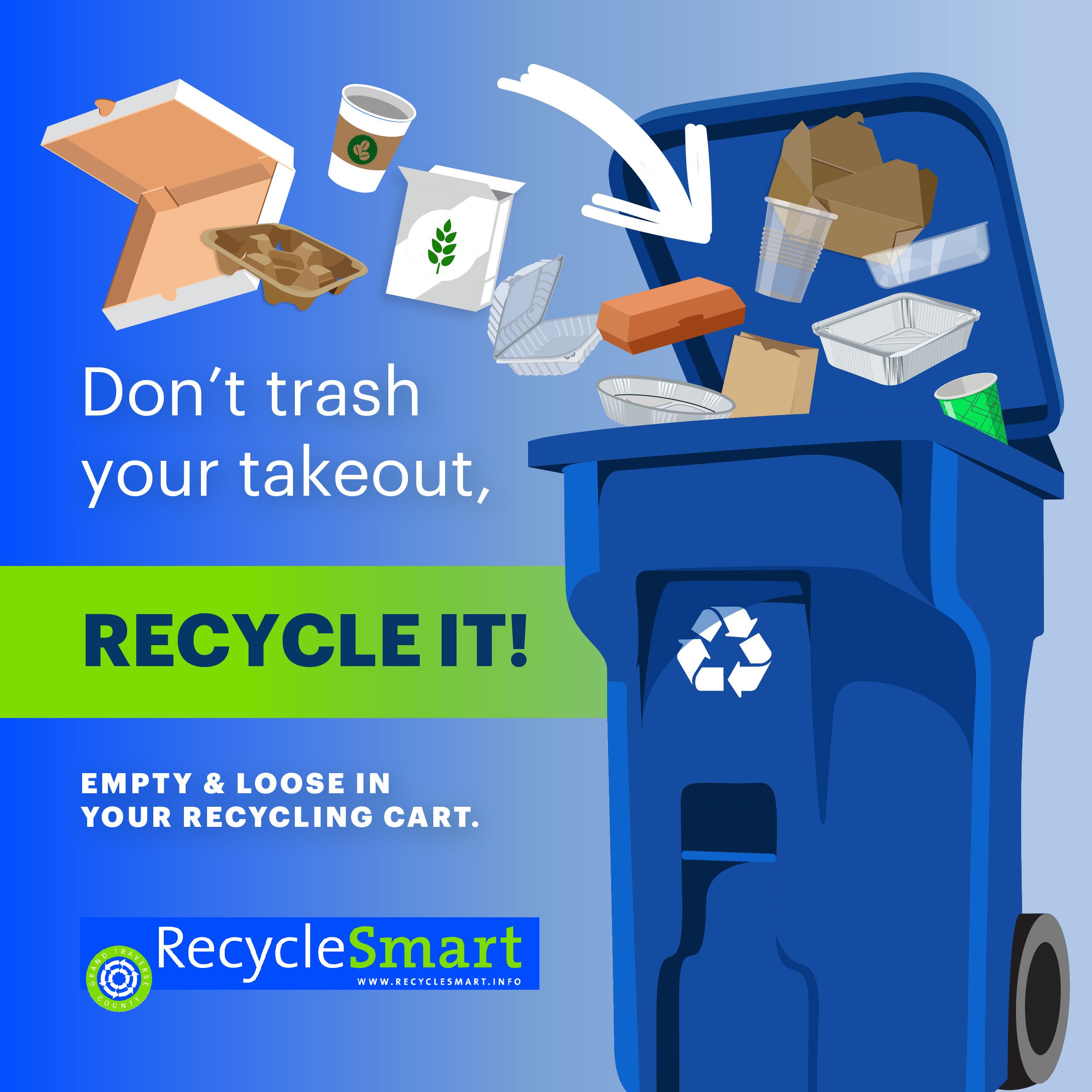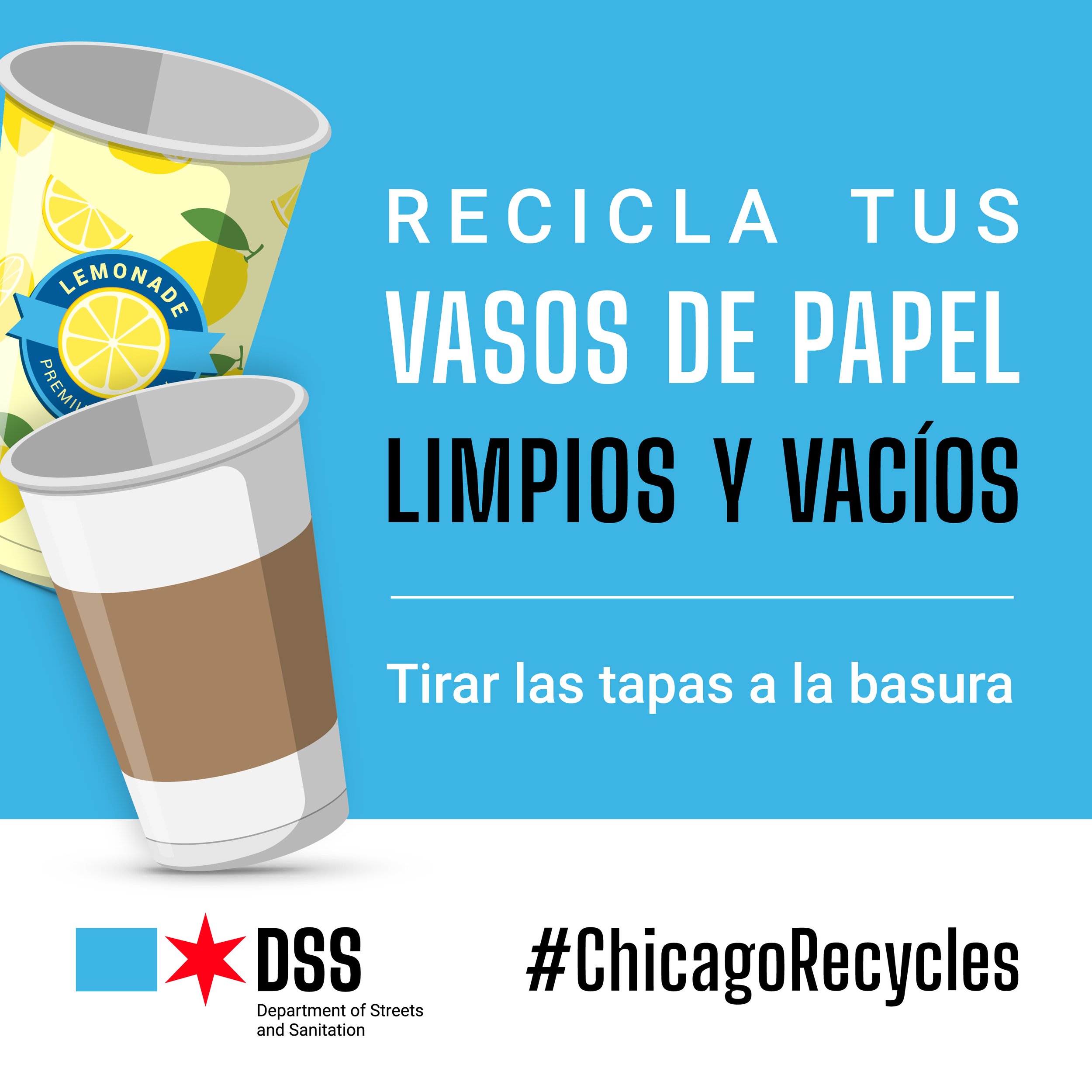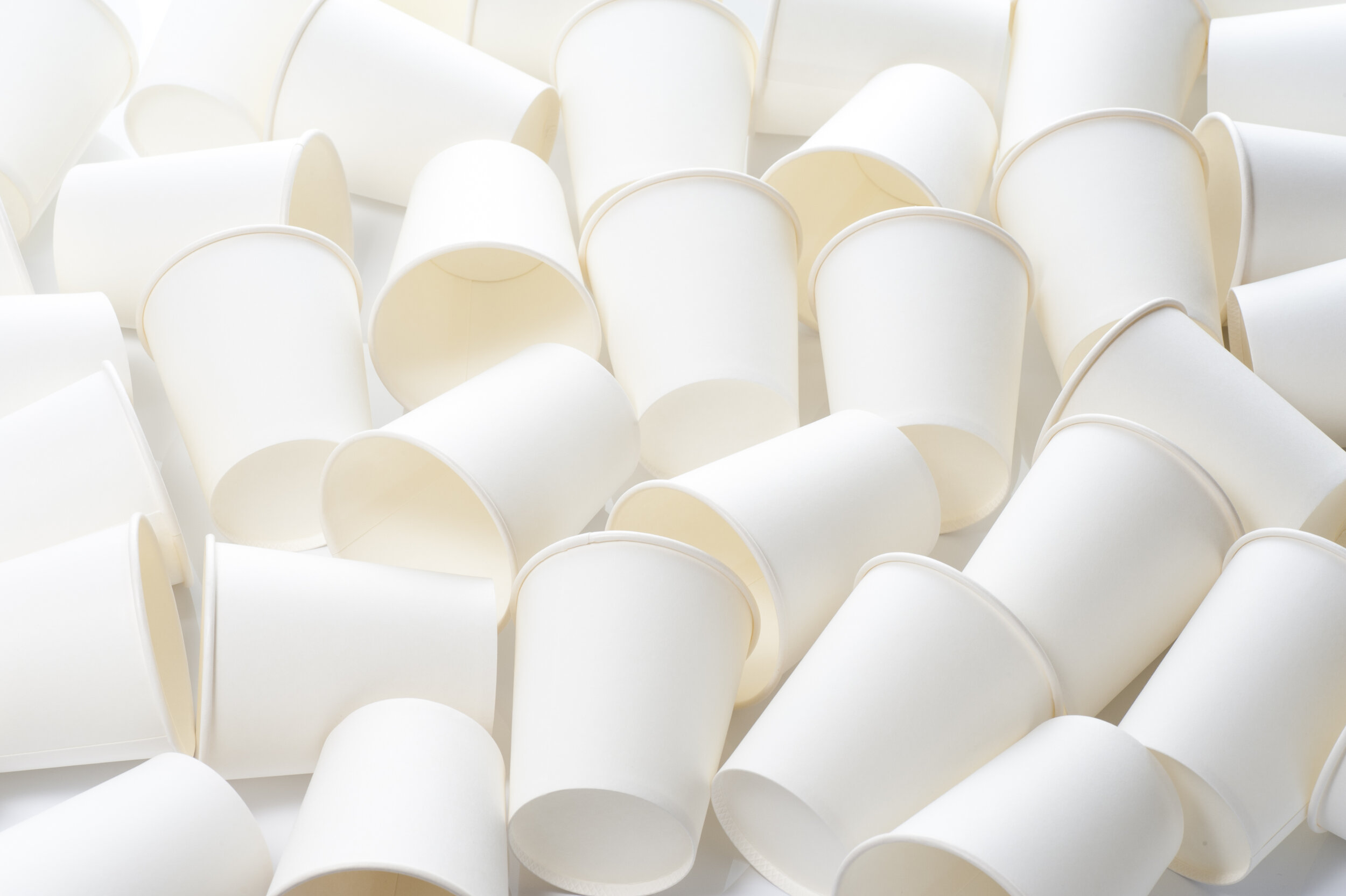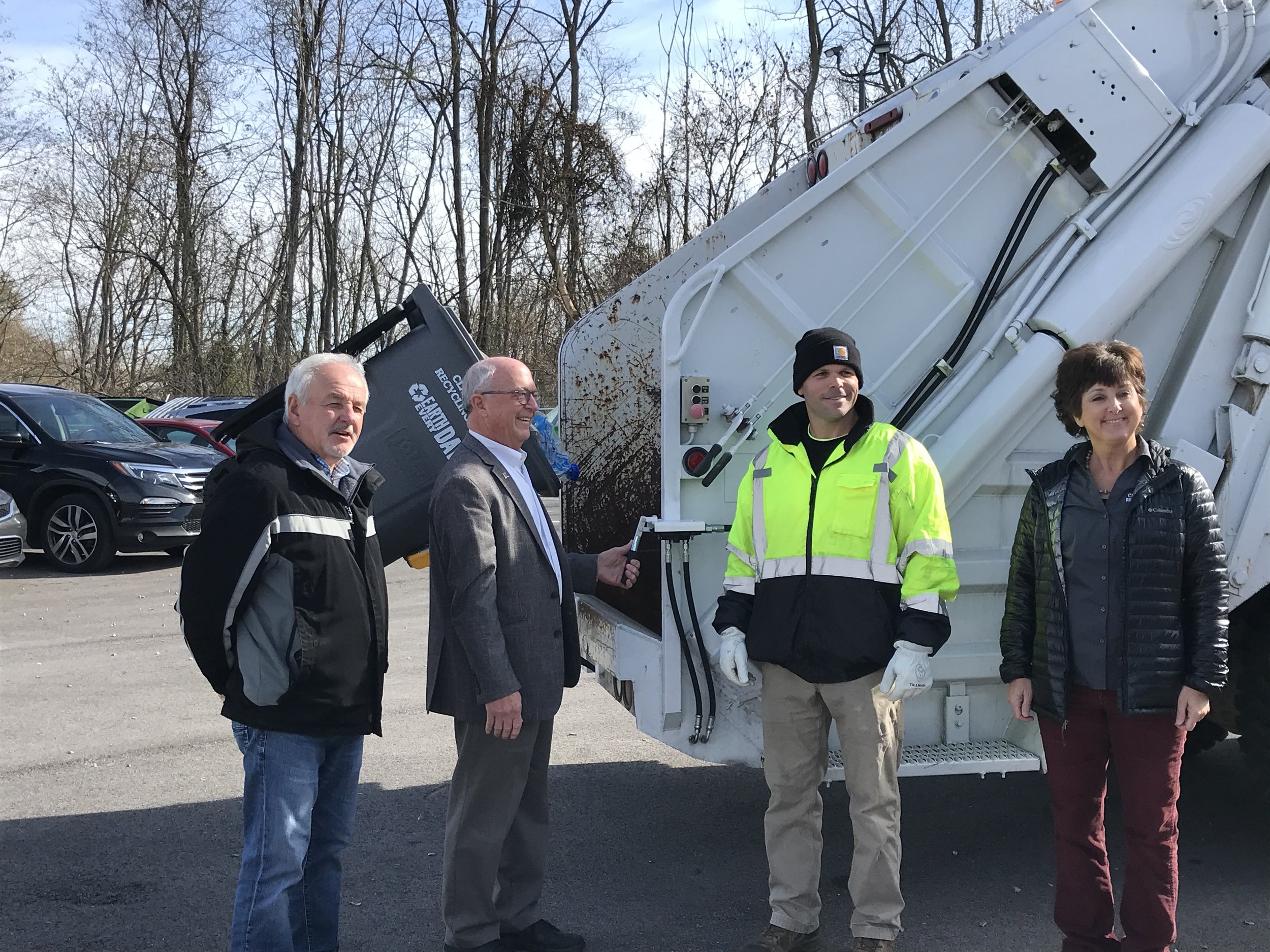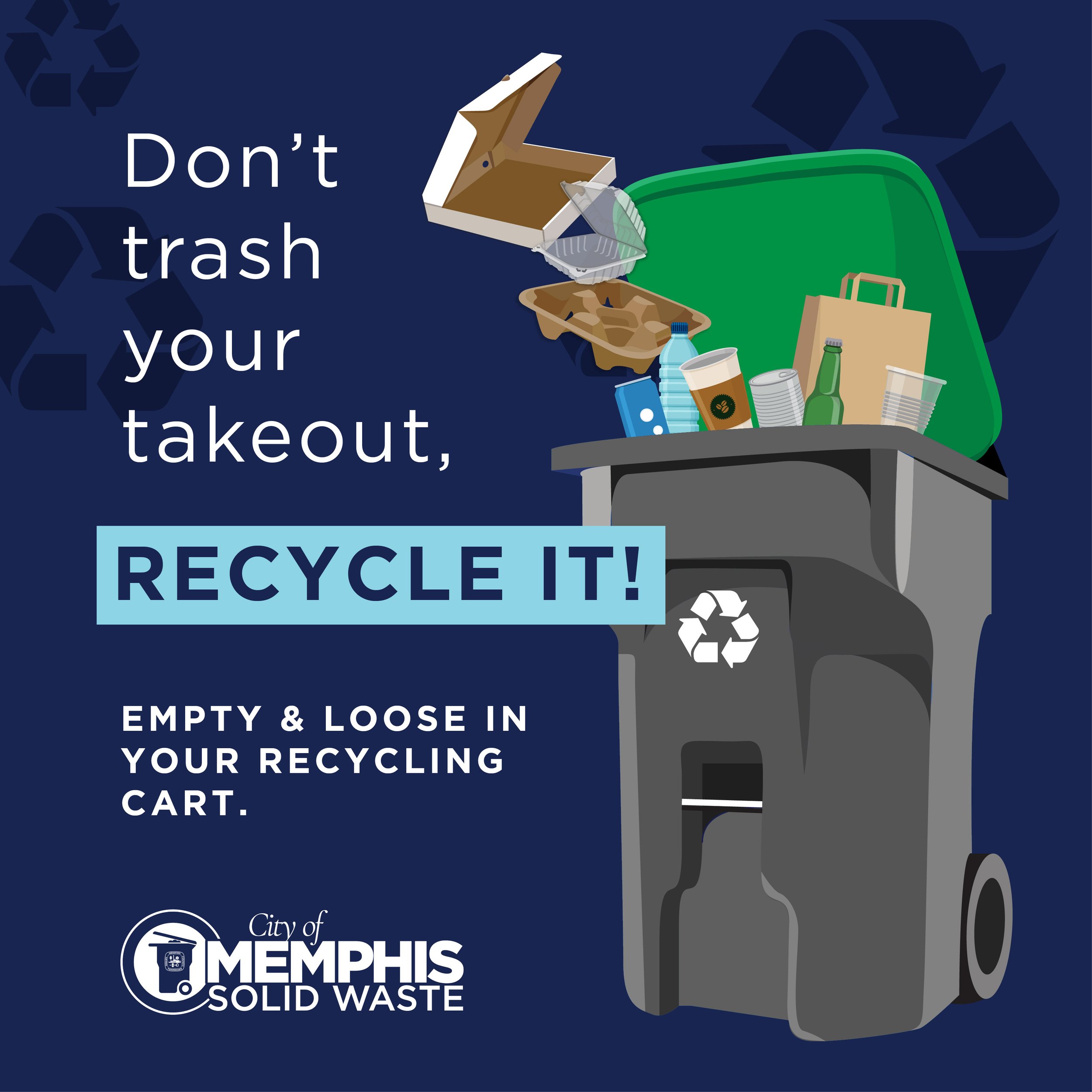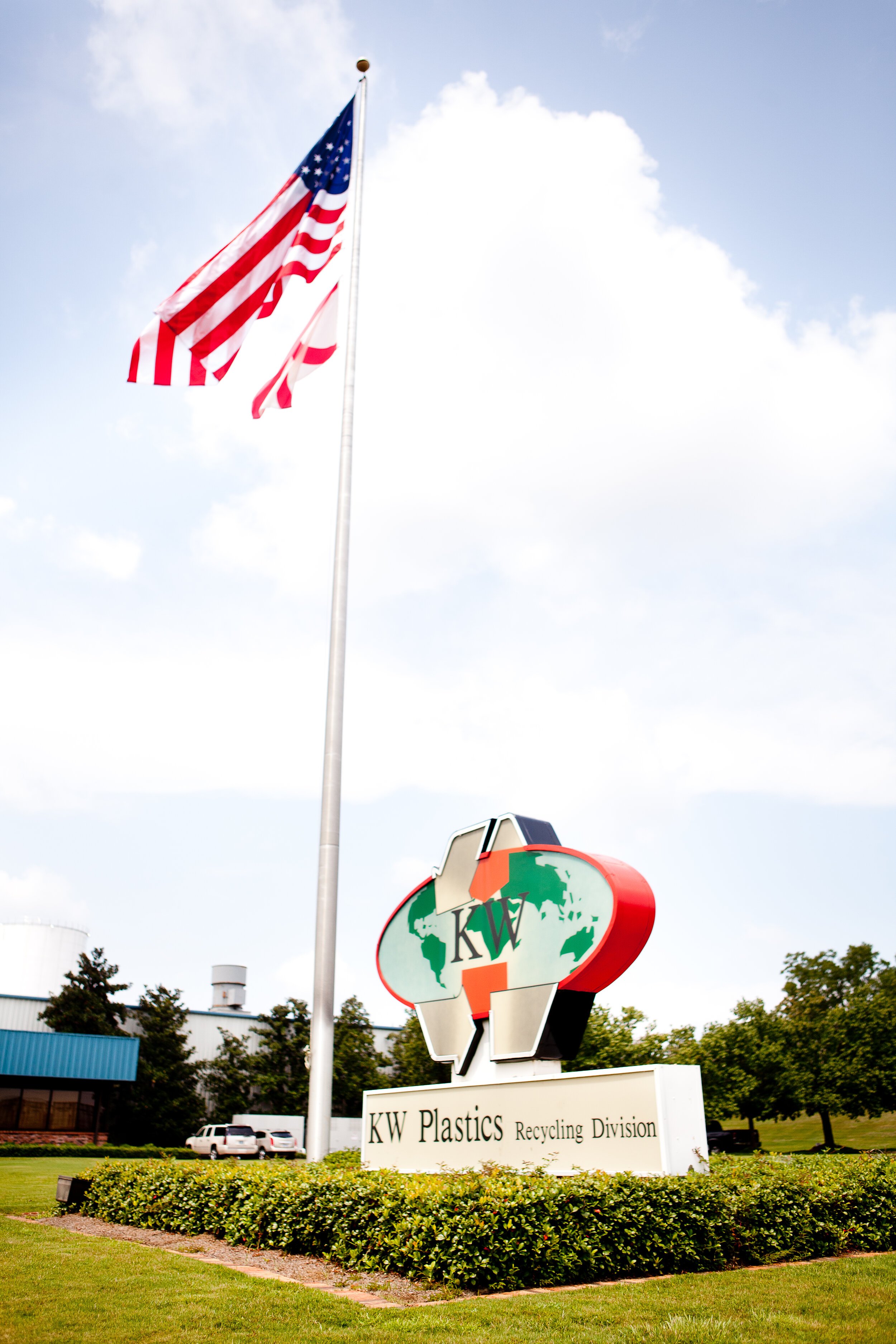Community Partnership | Kent County, MI
Foodservice Packaging Materials Accepted
Plastic cups*Plastic tubs/containers/trays*
Rigid plastic cups*
Rigid plastic clamshells/containers*
Aluminum foil containers/pans/trays*
Paper cups*
Aluminum foil
Paper bags
Pizza boxes
Molded fiber egg cartons
Molded fiber carriers/takeout Containers
*New items added during partnership
Background
In 2019, around 309,500 households in Kent County had the convenience of single-stream curbside recycling collection, a service provided through contracted haulers. These collected recyclables found their way to the county's materials recovery facility (MRF), known as the Recycling & Education Center in Grand Rapids. For residents without access to curbside recycling, the County also offered accessible drop-off recycling stations.
As part of a visionary "20x'20/90x'30" initiative, the County set ambitious goals to reduce landfill waste by 20% by the year 2020 and an even more substantial 90% by 2030.
The County’s strong commitment to sustainability made it an ideal candidate to expand its recycling program to incorporate a range of foodservice items, like cups and containers, through an FPI Community Partnership.
Phase 1: Cartons & Foodservice Packaging Promotion
Kent County’s partnership with FPI was two-phased. Initially, the MRF underwent operational changes to enable the recovery of new materials. In 2017, using an optical sorter partially funded by the Carton Council, the County began to sort recycled cartons into dedicated carton bales.
Subsequently, two years later, Kent County partnered with FPI to update its residential recycling information. This update included promoting the acceptance of cartons, along with other eligible foodservice items. FPI’s communications grant supported the development of educational pieces including an updated bilingual recycling flyer (English/Spanish), advertisements wrapped on hauler trucks, revisions to the County's recycling website, and the installation of new over-bin signage at the Grand Rapids airport.
The County kicked off the outreach campaign at the MRF, joined by representatives from the Michigan Department of Environment, Great Lakes, and Energy (EGLE) and Natha Dempsey from FPI.
Phase 2: Paper Cups
Building upon the success of the initial outreach campaign, Kent County set its sights on further enhancing recovery rates by introducing a new material into its operations: paper cups. This addition enjoyed unanimous support and alignment among all stakeholders, as the end markets that accepted cartons were also willing to accept paper cups.
FPI assisted Kent County in updating its educational materials to incorporate information about paper cups. This encompassed updates to its website, recycling flyer, revised box signage for the drop-off recycling stations, expanded social media outreach, local newspaper and television publicity efforts, the creation of a residential recycling survey, and the installation of outdoor signage. The County also organized a recycling promotion and education eventat a local coffee shop, featuring Ashley Elzinga, FPI's Director of Sustainability & Outreach.
Over bin signage at Gerald R. Ford International Airport using Kent County’s color-coded SORT system.
Results
After Kent County’s outreach campaigns, paper foodservice recovery at the MRF increased from 0.22% to 1.35% and residue/contamination decreased from 14% to 12%.
Social media ads reached over 17,000 county residents. Additionally, the residential recycling survey launched as part of the outreach campaign received more than 1,200 responses. This survey provided insights on residential recycling attitudes and habits, allowing the County to further shape its recycling strategies towards meeting its sustainability goals.
Next Steps
Kent County stays committed to reducing its landfill waste and reaching the goals outlined in the 20x’20/90x’30 Vision plan. In 2019, Kent County and the City of Grand Rapids co-launched the Separate Out Trash Recycling (S.O.R.T.) pilot program at ArtPrize, an art competition and festival. S.O.R.T. helps residents divert resources away from the landfill by placing materials into the right colored bin. After a successful launch, the program expanded into municipal buildings and parks.
November 2022

